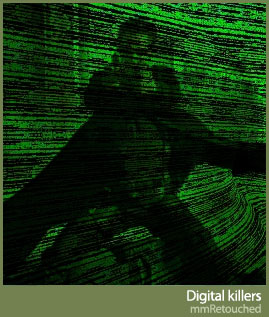Civilian Murder in the Digital World.
The paradox of evil: ethics and aesthetics of crime in the digital society. The digital age is changing the aesthetics of crimes to the point of becoming cruelty-inducing, magnifying it and creating new channels to spread it. Spain was the first European country to guarantee digital rights related to the Internet through the enactment of the Organic Law on the Protection of Personal Data and Guarantee of Digital Rights, which regulates issues such as the right to be forgotten, security and education or digital disconnection in the Laboral scene.
Around civil murder an industry has been forming, which organizes campaigns strategically aimed at ending the reputation of a person or an organization. The industry designs coordinated actions over time, until it manages to modify public information about a person, creating an alternative story supported by manipulated sources, and supported by statements from people supposedly affected or harmed by that person or organization. The keys to destroying a person's identity lie in fostering their social isolation, their economic isolation, causing financial difficulties to the point of leading them to the situation of having no choice but to deny their trusted environment, and future social contacts, the reality that he tells himself on the internet.
This technique comes from the intelligence services, although it is normalized today, it has no other purpose than to publish material on the Internet and falsely attribute it to another person until they are discredited and isolated from their environment. The technique consists of the systematic publication of information, in the form of social accounts and blogs of its alleged victims, negative information and impersonation of the person who is intended to harm.
The orchestrated attack against the Mexican digital newspaper SinEmbargo, through some twenty Twitter users, in which they accused journalists from that newspaper of all kinds of vices, bad practices and various sins, has been paradigmatic. The campaign had all the signs of coming from a robot: repetitive messages, clearly invented users, appointments to non-existent leagues, etc.
In this attack, the Facebook page of the singer Belinda, with 7.5 million followers, was hacked and from it notes were published accusing SinEmbargo's Content Director of being a rapist and pedophile. A tweet by journalist Sanjuana Martinez in support of SinEmbargo was responded to with an image of a corpse with its head attached.
Most of the victims suffer irreparable moral damage, which, on occasions, can become somatized by the victim. In any case, demanding compensation from the aggressor is necessary. The speed at which the digital society opens possibilities in all areas of human life, causes legislation to be developed even more late than in real life, requiring a greater effort so that the rights of citizens and organizations are protected also in the digital world.

